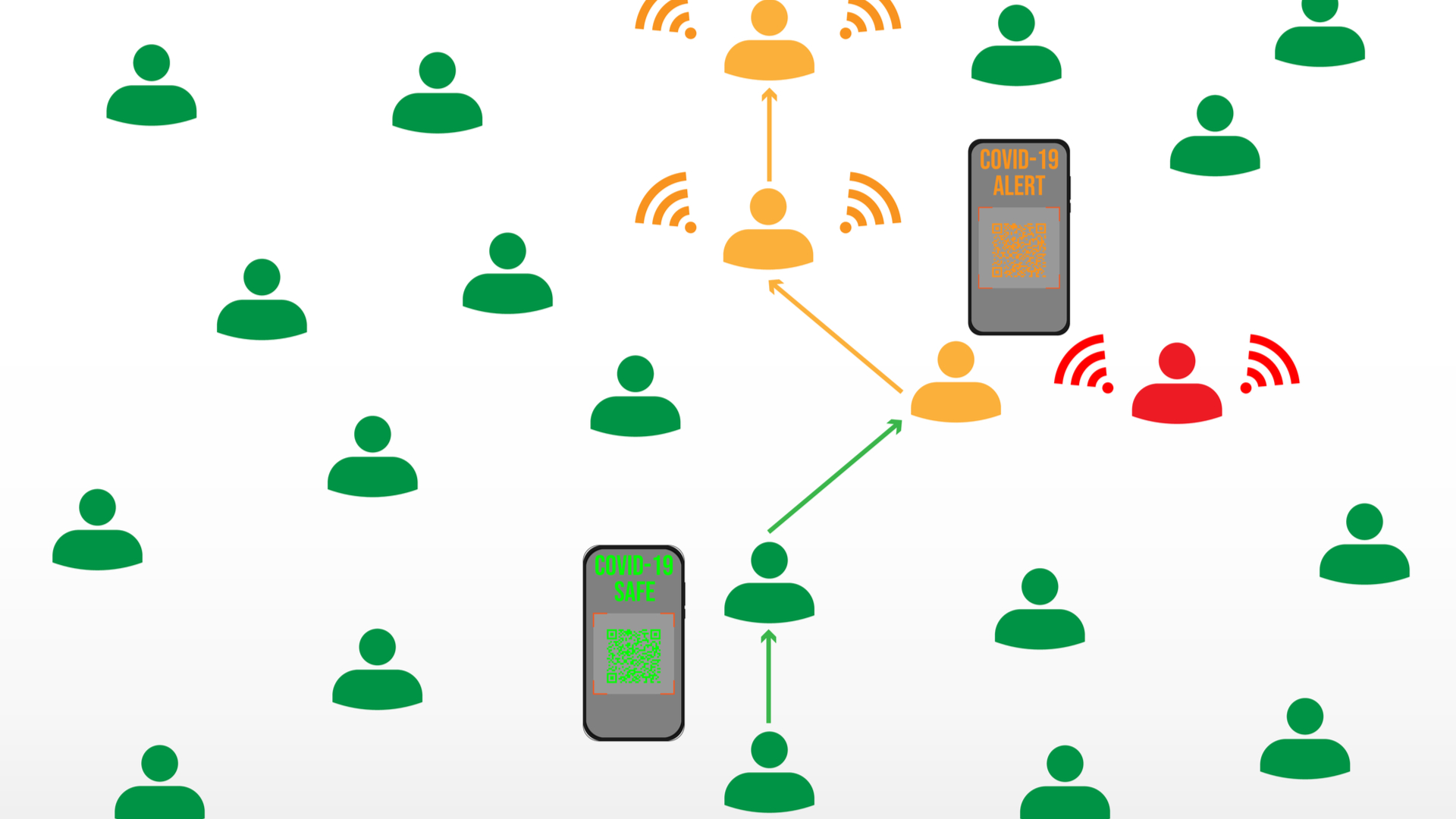Scotland will launch its own contact-tracing app
The Scottish government says the app will arrive in the autumn and will not ask users to reveal personal information


The Scottish government has announced that it is working towards having its coronavirus contact-tracing app available in the autumn.
The app, which is currently “in development”, will complement NHS Scotland’s Test and Protect system and its existing person to person contact-tracing, which was rolled out in late-May.
It will alert users by sending them a unique code to their mobile if they have come in close contact with another user who has tested positive for COVID-19. If they provide their consent, the data will then be sent to a server in order to trace other close contacts who might have also contracted the virus. The app, developed by Nearform, will measure proximity using Bluetooth technology.
According to the Scottish government, the app will be voluntary and anonymised, and will not ask users to reveal personal information at any time.
Scotland’s contact-tracing app is to be based on the same software as the one used in Northern Ireland. This was launched late last week and is also compatible with the Republic of Ireland’s app in order to support movement across the common travel area.
In a statement, the Scottish government said it “remains in discussion with the UK government on its proximity app”.
Scotland’s health secretary Jeane Freeman said that the app “will offer an additional level of protection”.
Get the ITPro daily newsletter
Sign up today and you will receive a free copy of our Future Focus 2025 report - the leading guidance on AI, cybersecurity and other IT challenges as per 700+ senior executives
“Users of the app who test positive will still get a call from a contact tracer to confirm their details and who they have been in close contact with. The app will, however, allow contacts unknown to the positive individual to be traced – for example, fellow passengers on a train or bus,” she said.
RELATED RESOURCE

Staying ahead of the game in the world of data
Create successful marketing campaigns by understanding your customers better
“We also know that not everyone uses a mobile phone or will be able to access the app, which is why this software is very much there to complement existing contact tracing methods.”
Commenting on the announcement, Dr Carlos Pinheiro, principal data scientist at SAS, said: “Mobility behaviour analysis can be used to help local authorities accurately define social distancing policies from a regional standpoint, allowing certain areas to be placed in and out of lockdown faster and more precisely, while carefully monitoring higher risk areas.
"A deployment in the Philippines showed that it is possible to predict areas of new outbreaks with high accuracy and to calculate a risk of infection for each geographic region. This tracing method, combined with the contact tracing app, would allow the Scottish Government to maintain a hold on the crucial ‘R’ figure and avoid the possibility of a second nationwide lockdown.”
Last week, executive chair of NHS Test and Trace, Dido Harding, said that an initial version of the UK's app would be released “shortly” and that a demo will be made available to a limited number of people who will provide feedback on its use.
“We will then further develop and roll out the app, based on user experience and testing to create more targeted advice and support for users,” said Harding.
Having only graduated from City University in 2019, Sabina has already demonstrated her abilities as a keen writer and effective journalist. Currently a content writer for Drapers, Sabina spent a number of years writing for ITPro, specialising in networking and telecommunications, as well as charting the efforts of technology companies to improve their inclusion and diversity strategies, a topic close to her heart.
Sabina has also held a number of editorial roles at Harper's Bazaar, Cube Collective, and HighClouds.
-
 Bigger salaries, more burnout: Is the CISO role in crisis?
Bigger salaries, more burnout: Is the CISO role in crisis?In-depth CISOs are more stressed than ever before – but why is this and what can be done?
By Kate O'Flaherty Published
-
 Cheap cyber crime kits can be bought on the dark web for less than $25
Cheap cyber crime kits can be bought on the dark web for less than $25News Research from NordVPN shows phishing kits are now widely available on the dark web and via messaging apps like Telegram, and are often selling for less than $25.
By Emma Woollacott Published
-
 Infostretch and INDIASHIELD partner to resolve COVID crisis in India
Infostretch and INDIASHIELD partner to resolve COVID crisis in IndiaNews Infostrech’s support platform aids INDIASHIELD’s emergency healthcare
By Praharsha Anand Published
-
 Why video conferencing is so tiring and what you can do about it
Why video conferencing is so tiring and what you can do about itIn-depth You’re not alone if you find video meetings far more tiring than the real thing
By Simon Hudson Published
-
 A new age of asset management
A new age of asset managementIn-depth Can migrating a business’ Active Directory to the cloud become a core resource as the consumerisation of tech continues?
By David Howell Last updated
-
 VaxAtlas' looks to connect the public to COVID-19 vaccine distributors
VaxAtlas' looks to connect the public to COVID-19 vaccine distributorsNews New platform unveils portable approach to COVID-19 vaccine distribution
By Praharsha Anand Published
-
 Linux Foundation open-sources coronavirus tracing apps
Linux Foundation open-sources coronavirus tracing appsNews The projects, based on the Google and Apple API, aim to support public health contact tracing efforts
By Keumars Afifi-Sabet Published
-
 Video conferencing service StarLeaf sees a 947% surge in UK usage
Video conferencing service StarLeaf sees a 947% surge in UK usageNews CEO Mark Richer believes this trend will continue long after the pandemic is over
By Sabina Weston Published
-
 UK's contact-tracing app will be ready in "two to three weeks"
UK's contact-tracing app will be ready in "two to three weeks"News NHSX CEO says app will be "crucial" in easing lockdown restrictions
By Sabina Weston Published
-
 NHS starts trial of machine learning system to predict demand
NHS starts trial of machine learning system to predict demandNews CPAS was developed by NHS Digital and a team of researchers from the University of Cambridge
By Sabina Weston Published